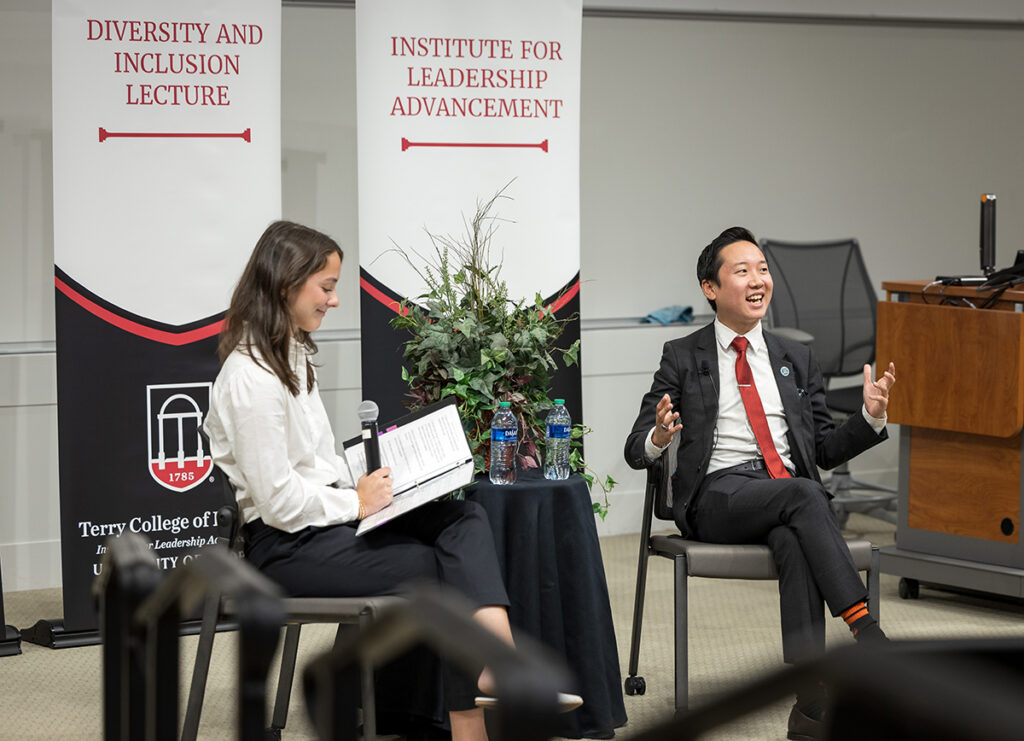J.T. Wu had an idea.
Discouraged by childhood illiteracy woes in Georgia’s Gwinnett County — where he grew up — Wu grouped with teachers and friends in 2019 to devise an experiment. Elementary students who didn’t grow up speaking English at home struggled to maintain grade-level learning, but perhaps older students who went through the same strains could give them a boost.
“We recruited about a dozen Spanish-speaking high school kids, sent them into an elementary school down the street, and said, ‘Let’s read to these kids a couple of times a week and see what happens,” Wu said. “All of those kids went from functionally illiterate to reading at or above grade level in 10 weeks. And we’re like, ‘OK, there’s something here.’”
That something became a philanthropic initiative named Preface, a program pairing high school and elementary kids with similar backgrounds with the shared goal of increasing childhood literacy skills. A Gwinnett County initiative at the start, Preface is now a national movement that customizes its plans based on a community’s needs. It’s free for partner schools, recognized by the Georgia Department of Education for its innovation, and has helped numerous children make great gains in their literacy skills.
“When I think about the next generation, how can we make sure we’re providing that to all our kiddos?” Wu told Terry College students on Oct. 16 as part of the Diversity and Inclusion Lecture Series (DILS) sponsored by Norfolk Southern and hosted by the Institute for Leadership Advancement. “Education remains that foundational pathway, and for us, it was how do we make it so it’s not just the people who have the resources and the money who can pay for these things for the kids to get.”
Wu serves as founder and executive director of Preface, a labor of love where he and his team collect no salary, and every dollar that comes in goes back into investing in the community. His present work as vice president of corporate development at Meadowlark Title — combined with his previous work in Citigroup’s Global Capital Markets division and the U.S. State Department’s Office of Foreign Assistance — offers him insights into the private and public sector to inform his volunteer work.
He also gains a wealth of inspiration from his parents. His Filipino-Chinese mother and Malaysian-Chinese father came to the U.S. and met at the University of Mississippi, moving to Gwinnett County following college.
“My parents were huge parts of my educational upbringing,” he said. “I think back to the way they would sit down and read to me when I was a child and encourage me on those journeys of exploration. That was huge, but I also recognize what a luxury that was. How do we try to preserve that possibility of the American dream, that educational opportunity in those foundations for the next generation, even when mom and dad may have to work two jobs to make ends meet?”
Aside from his parents’ teachings, the allure to help the problem of childhood illiteracy comes from several sources. His policy background includes his time at Princeton University, where he earned public policy and international affairs degrees and specialized in international institutions and global governance. But his love of reading — and for assuring children can share that passion — started in the Gwinnett Public Library, where he ran around the stacks at the Duluth branch as a kid. Earlier this year, he was named chairman of the Gwinnett County Public Library Board of Trustees, and he carries the library’s legacy with him when directing Preface’s future.
“[The library] is a welcoming space — it’s one of the only places in our country that remains free and accessible to everybody, regardless of socio-economic status — you don’t have to pay to get a library card, you can just go in and get one,” Wu said. “It’s been a huge responsibility and a real privilege to make sure that the next generation sees it the way I was able to see it as a kid coming up.”
The DILS events aim to promote how diversity and inclusion help to benefit and build better workplaces. Wu sees D&I as “elevating the power of all our individual stories to create a unique tapestry of perspectives that make any organization or institution better.” Without this valuable asset, programs such as Preface are not as dynamic or effective.
“For me, Preface wouldn’t exist without my background, or without my parents’ background, or without my friends’ background, or without our board’s background,” Wu said. “It’s finding those common threads that can bring diverse perspectives together into a cohesive and cogent narrative that can push the organization forward.”

